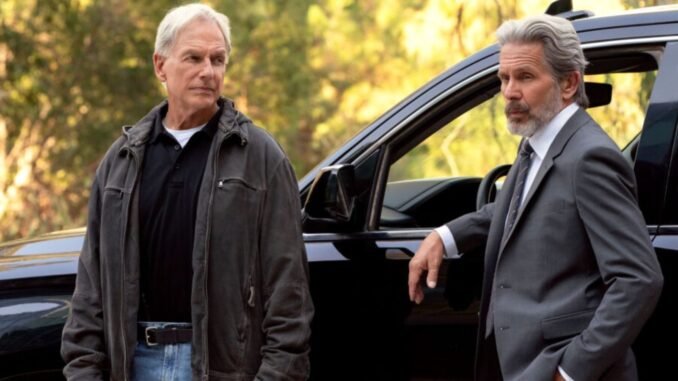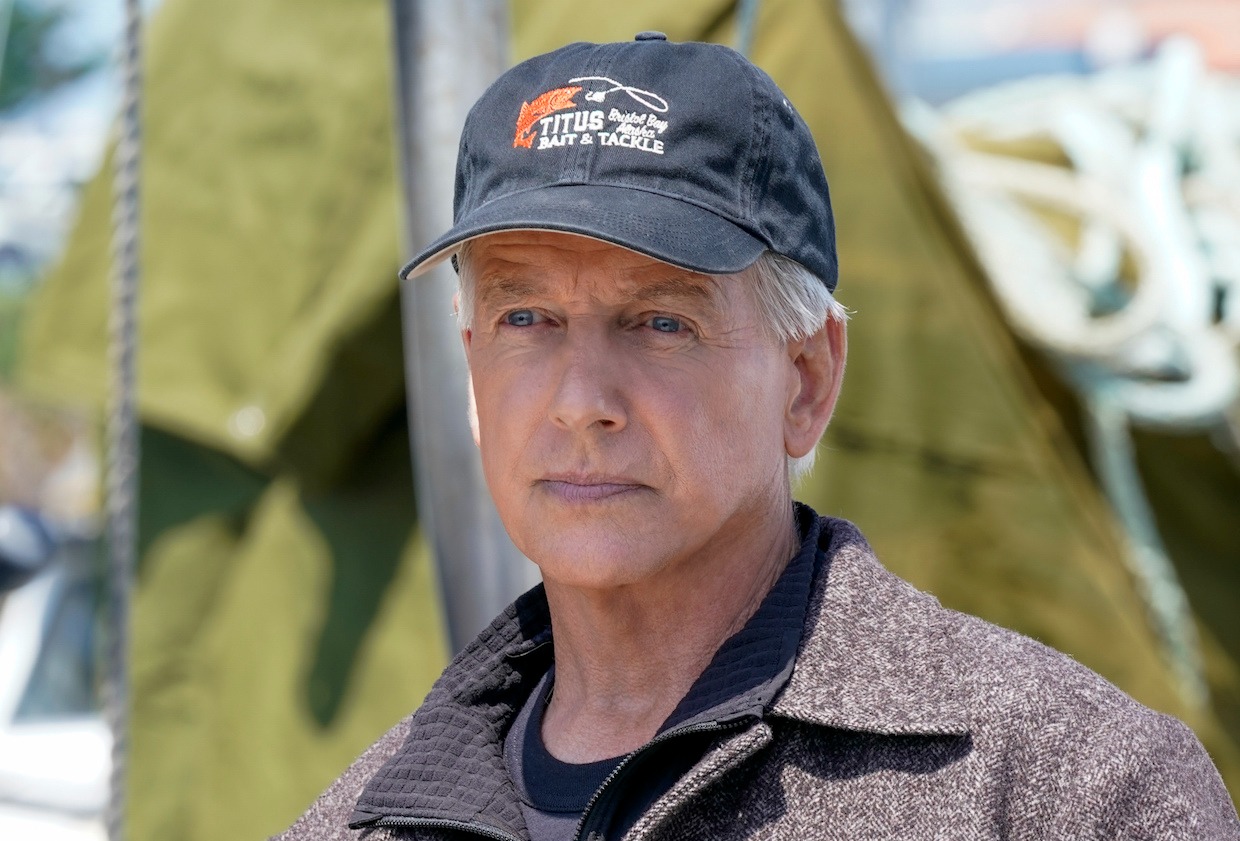
Introduction: The Unexpected Road to Gibbs
When we think of NCIS, one name immediately comes to mind: Leroy Jethro Gibbs. Stoic. Commanding. Unflinching. Played flawlessly by Mark Harmon, Gibbs became the soul of the show for nearly two decades. But what if we told you that Harmon almost didn’t take the role? That his decision to say “yes” wasn’t rooted in ambition or money—but something much more personal and profound?
Let’s dig deep into the real reason Harmon agreed to portray one of television’s most beloved characters—and how a single moment changed the course of TV history.
Mark Harmon’s Legacy Before NCIS
A Career Built on Grit and Quiet Confidence
Before stepping into Gibbs’ shoes, Harmon had a respectable résumé. From “St. Elsewhere” to “Chicago Hope,” he was always consistent, delivering solid performances. But he hadn’t yet found the role that would immortalize him. That all changed in 2003.
The Casting Curveball That Was NCIS
CBS executives wanted Harmon for Gibbs. But unlike other actors who’d leap at the chance to headline a potential hit, Harmon hesitated. Why? He didn’t need the fame. He wasn’t chasing the spotlight. There had to be another reason.
The True Catalyst — An Emotional Wake-Up Call
Harmon’s Honest Reflection: “I Don’t Think I Would Have Been There”
During an interview years later, Harmon admitted, “I don’t think I would have been there if not for what happened.” That “what” is the deeply personal and emotional moment that nudged him into taking the role.
The Tragedy That Changed His Perspective
It was the loss of a dear friend—someone Harmon admired greatly—that shifted his outlook. Death has a way of recalibrating what matters. For Harmon, it made him reevaluate his career choices and how he spent his time.
Gibbs Was More Than a Role — It Was a Tribute
The stoicism, discipline, and sense of justice that defined Gibbs were all characteristics Harmon valued. The role wasn’t just acting; it was a reflection of the kind of man he respected. Taking the job became a way to honor that.

Crafting the Gibbs Persona
Building a Character From the Ground Up
Mark Harmon didn’t just walk into the role of Gibbs—he helped build it. From day one, he worked closely with writers to shape the character into someone grounded, believable, and layered.
Why Gibbs’ Silence Was So Powerful
Harmon believed that silence could say more than words. That’s why Gibbs’ quiet moments—his glances, his thoughtful pauses—spoke volumes. It was a masterclass in subtle acting.
The Rules: How They Defined Gibbs and Harmon Alike
Gibbs’ infamous rules were more than plot devices. They reflected a moral compass—something Harmon believed in both on and off-screen.
NCIS Becomes a Phenomenon
The Reluctant Star Turned Ratings Juggernaut
Once NCIS aired, it didn’t just succeed—it exploded. Millions tuned in weekly. But Harmon kept his head down, treating the show like a team effort. He wasn’t a diva. He was the leader.
Behind the Scenes: Harmon’s Quiet Command
Colleagues have often said Harmon led by example. He showed up on time. Knew his lines. Listened. Encouraged. He was Gibbs both on and off-screen.
Why He Almost Walked Away
The Weight of Leadership Takes Its Toll
For years, Harmon carried the emotional and professional weight of NCIS. It wasn’t easy. He eventually stepped back—not because he didn’t care, but because he cared too much.
His Exit Was Quiet—Just Like Gibbs Would Have Wanted
No fanfare. No media circus. When Harmon left NCIS as a regular, it was subtle and respectful. True to the man he portrayed.
The Legacy Lives On
NCIS Still Bears His Imprint
Even in his absence, Harmon’s spirit lingers in NCIS. His influence helped build the show’s foundation—one of honor, discipline, and loyalty.
New Characters, Same Gibbs Blueprint
Every new character introduced seems to carry a little piece of Gibbs. That’s no accident. It’s a testament to the foundation Harmon laid.
Harmon’s Words That Still Resonate
“It Was Never About Me” — A Man of Humility
In interview after interview, Harmon downplayed his role in NCIS’ success. “It was about the writing, the cast, the crew.” That humility made him a fan favorite.
Choosing Purpose Over Popularity
Many actors chase the next big thing. Harmon didn’t. He chose meaning. And in doing so, he created something far bigger than himself.
Lessons From Mark Harmon’s Choice
Sometimes, Saying Yes Comes From the Heart
We often assume major career moves are calculated. Not this one. Harmon said yes because it felt right—not because it looked good on paper.
Legacy Isn’t Built Overnight—It’s Built With Intention
Gibbs became iconic because Harmon cared. He didn’t mail it in. He lived that role, and audiences felt it.
Conclusion: A Choice That Changed TV Forever
Mark Harmon’s choice to play Leroy Jethro Gibbs was anything but conventional. He didn’t do it for fame or fortune. He did it because it aligned with his values—because it meant something. That sincerity translated to millions of viewers who saw a real man behind the badge.
And while he’s no longer on screen every week, Gibbs remains a blueprint for leadership, integrity, and quiet strength. All because one man made a decision from the heart—and the world of television has never been the same.
❓ 5 Unique FAQs
Q1: Why did Mark Harmon hesitate to take the role of Gibbs?
A: Harmon was reflecting on life after the loss of a friend and didn’t initially see the show as his next step. But the emotional clarity led him to say yes.
Q2: Was Gibbs written with Mark Harmon in mind?
A: No, but once Harmon joined, he heavily influenced the character’s evolution, making Gibbs a perfect extension of his own values.
Q3: Did Mark Harmon really help shape the NCIS scripts?
A: Yes. Harmon was deeply involved in character development, especially in establishing Gibbs’ unique voice and demeanor.
Q4: What was Mark Harmon’s biggest contribution to NCIS?
A: Beyond acting, it was his leadership—off-camera professionalism and integrity created a culture that made NCIS thrive.
Q5: Could NCIS have succeeded without Mark Harmon?
A: It’s hard to imagine. While the cast and crew were talented, Harmon’s grounded presence was the glue that held it all together.